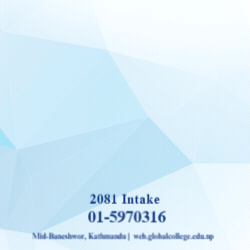The Transgender Identity Debate
We use Google Cloud Translation Services. Google requires we provide the following disclaimer relating to use of this service:
This service may contain translations powered by Google. Google disclaims all warranties related to the translations, expressed or implied, including any warranties of accuracy, reliability, and any implied warranties of merchantability, fitness for a particular purpose, and noninfringement.


The Constitution of Nepal has accepted the existence of sexual and gender minority communities and also accepted identity, rights and inclusion. Sexual and gender minority communities generally refer to homosexuals (gay men, gay women), third nature (boy-born female, girl-born male) and intersex (ambiguous or mixed sex) people.



Article 12 of the Constitution provides that every citizen can get citizenship according to their gender identity. The current Citizenship Act also provides for granting citizenship to people who do not identify themselves as male or female by mentioning 'other' in the gender.
Such people have been recognized as third nature or third gender since historical times. However, today, people of the third nature identify themselves as transsexuals and say, 'We are not the third gender, even though we were born as children, our souls belong to women, we are women, we should get the identity of women, we were born in the wrong body.' Likewise, male-born persons also hold the same argument.
These people who believe themselves to be transsexual are also taking hormones and having sexual organs transplants on the rise. Currently, the ideological conflict within the sexual and gender minority community is also about these two types of identity. One type is taking citizenship with 'other' mentioned in the palace of gender saying 'we are different from men and women, our body growth is all natural, we are people of third nature'.
Another type says, "We are 'transgender', even if we were born as children, we should get female citizenship, because our soul is female." Similarly, they say, "Even if you are born a girl, you should get the citizenship of a man, because our soul belongs to a man." The problem is created by the demand that one type of 'people with the same biology, physical structure and thinking' calls themselves third nature, another type calls them transgender, one type should be given the citizenship of 'other', the other type should be given the citizenship of 'female' or 'male'. is There is confusion and conflict everywhere due to differences in philosophical beliefs about identity. There is also conflict within the
community. How to give citizenship of different identity to the same person in the Ministry of Home Affairs, district administration and local governments? How to manage? The challenge has emerged. The practical challenges faced by transsexuals becoming either male or female and taking female or male citizenship are as follows:
First, the process of hormone and sexual organ transplantation itself is complicated. is expensive and has long-term 'side effects' associated with it. Secondly, there is no such system (of hormones and sex organ transplants) in Nepal. You have to go abroad. Those who have money can do it. If you don't have money, you will be deprived of the opportunity to become a woman or a man.
The law does not address the issue of taking hormones and transplanting sexual organs to become a woman or a man. In the absence of any policies, regulations and monitoring from the relevant government agencies, the work of taking hormones and transplanting sexual organs is being done in a hidden and risky manner. And, when various agencies of the state ask for a certificate of sexual organ transplant on such applications for citizenship, it seems illegal for them to ask for something that is not in the law.
In a way, it seems like they have made sexual organ transplant compulsory even just to get citizenship. There is no discussion about what kind of positive or negative impact there will be on women's rights and women's position, social participation, and lifestyle after transsexuals become women. In the same way, it is necessary to discuss the issue of 'if transsexuals who have daughters take male citizenship, what kind of positive or negative impact will it have on men's rights, inclusion, social participation, lifestyle, etc.
Third nature and self-identifying transsexuals are one and the same. People of the third nature are taking citizenship as 'other', while the demand of transsexual people is saying that 'we should get the identity of either female or male, different from the gender we were born with, whether or not we have transplanted sexual organs'. Although the law does not provide for transsexuals to become 'women or men' and take citizenship of 'women or men', so far, about 17-18 people (those who have children at birth) have taken women's citizenship by ministerial decision.
In my understanding, taking citizenship as 'other' with the recognition of third nature persons is practically easy, no need for hormones and sexual organ transplants and it is relatively easy to be established in the society as it has been accepted since time immemorial according to our eastern philosophy. But if someone takes the citizenship of a woman through a ministerial decision, I have no objection to it. I have nothing to say even if tomorrow the sovereign parliament of Nepal gives concessions to transsexuals to become women or men and gives citizenship to women or men.
Some western countries have arranged for transsexuals to be both male and female and receive citizenship accordingly. However, in those countries, like Nepal, there is no system to identify people of third nature as 'other' other than women or men. The state cannot continue to ignore the gender identity and citizenship demands of transgender people. It is necessary to call all areas and form a common opinion and give it a proper solution.
The state has recognized a level of marginalized and minority communities. Now it is necessary for this community to take itself out of the victim and come forward that we are also strong and can contribute to the state. In other genres besides glamor and fashion, this community has to participate, discuss, and take hold.
The campaign of sexual and gender minorities now seems necessary to discuss and study political debates, social debates, cultural participation, issues of national interest, and economic policy of the country. It is important for this community to understand that in order to come to the mainstream, there is a need for deep thinking, contemplation, study and participation in national mainstream issues. On the other hand, the state should remove discriminatory laws and create an environment that allows for equal opportunities, participation and inclusion.
– Pant is Asia's first gay member of parliament.
 प्रकाशित : असार १८, २०८१ ०६:२८
प्रकाशित : असार १८, २०८१ ०६:२८

 २१.१२°C काठमाडौं
२१.१२°C काठमाडौं


















